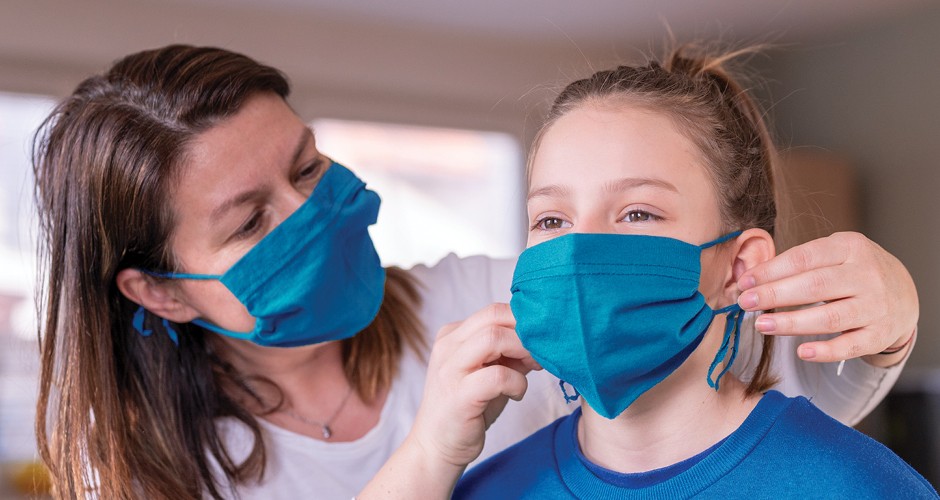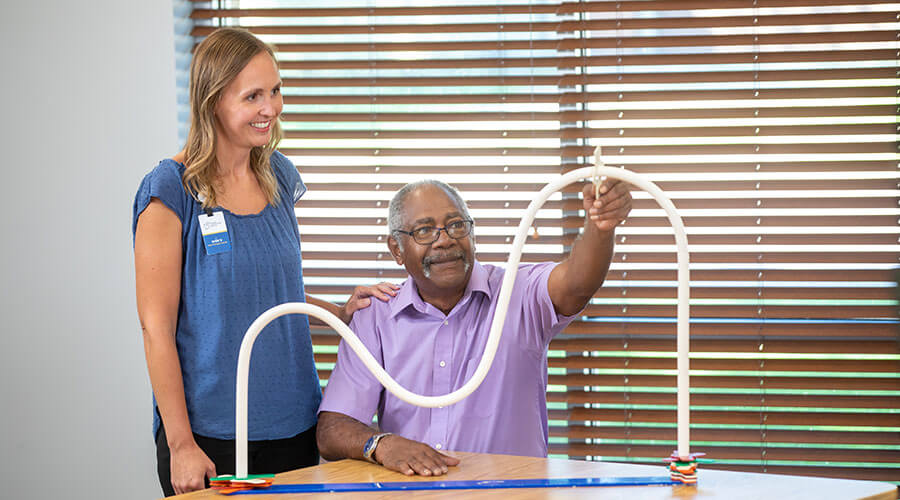While the pandemic has put a halt to many aspects of our daily lives, it shouldn't stop your day-to-day care.
The Good Samaritan Society offers a wide variety of services spanning 24 states.
Two services that remain open to those in need are therapy and rehab services.
In a Facebook Live interview, Senior Director of Therapy and Rehab Services Dawn Andresen spoke on why this care is so important, and why it's risky to delay it.
What are therapy and rehab services?
Dawn explains that these services are for "people of all ages who no longer need hospital care, but would benefit from additional care before returning to home."
Therapy gyms, and physical, occupational, and speech therapy are all examples of therapy and rehab.
Find a location: Therapy and rehab at the Good Samaritan Society
These services help patients improve their daily activities, such as dressing, bathing, grooming or other tasks.
"Other individuals may have had surgery or have suffered an injury or illness that affects their functional mobility with getting in and out of bed, walking, managing stairs or getting in and out of a vehicle.
"Some of those we serve may have changes in their ability to problem solve, remember, communicate or swallow," says Dawn.
Safety measures in therapy, rehab
The Good Samaritan Society always has the safety and well-being of its residents in mind; Dawn says the COVID-19 pandemic has enhanced those efforts.
"We've been universally masking and wearing eye protection. We provide services one-on-one rather than in group settings. We're limiting our use of therapy gyms and providing services in smaller areas, or the resident's room, when possible," she said.
Good Samaritan Society's therapists are also screened for COVID-19 symptoms and exposure before interacting with any patients.
Providers are handling therapy on a case-by-case basis, allowing them to decide if it's safe to bring in patients from the community.
Services for COVID-positive patients
The Good Samaritan Society's highest priority is the health and well-being of its residents, which is why therapy and rehab services will continue to be provided to those who've tested positive for COVID-19.
"At the start of the pandemic, we developed a tiered therapy approach that helps therapists make decisions. If a resident is experiencing significant symptoms, like pain or pressure in the chest, high fever or unstable blood pressure, we hold off from delivering therapy services," she says.
Once symptoms clear and the resident can perform activities of daily living without pain, therapy will once again be provided.
"Sometimes, perceptions of therapy are that it's helpful to rehab residents after an injury, like a fall or a surgery. While that's very true, it's less well known how important therapy is after an illness.
"During an illness, residents are less mobile and oftentimes, their overall health declines on top of fighting off illness. Getting them to therapy allows us to quickly address any decline and bring them back up to health," says Dawn.
She says she wants people to know they're safe at the Good Samaritan Society.
"It's safe here," Dawn says. "Safety is our top priority. Delaying rehabilitation and therapy services can have long-lasting impacts on your health. You can have confidence in the measures we have in place."




